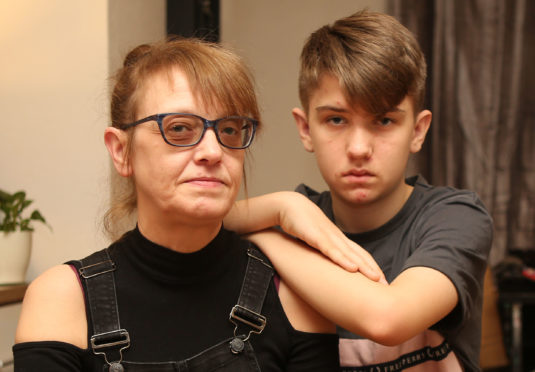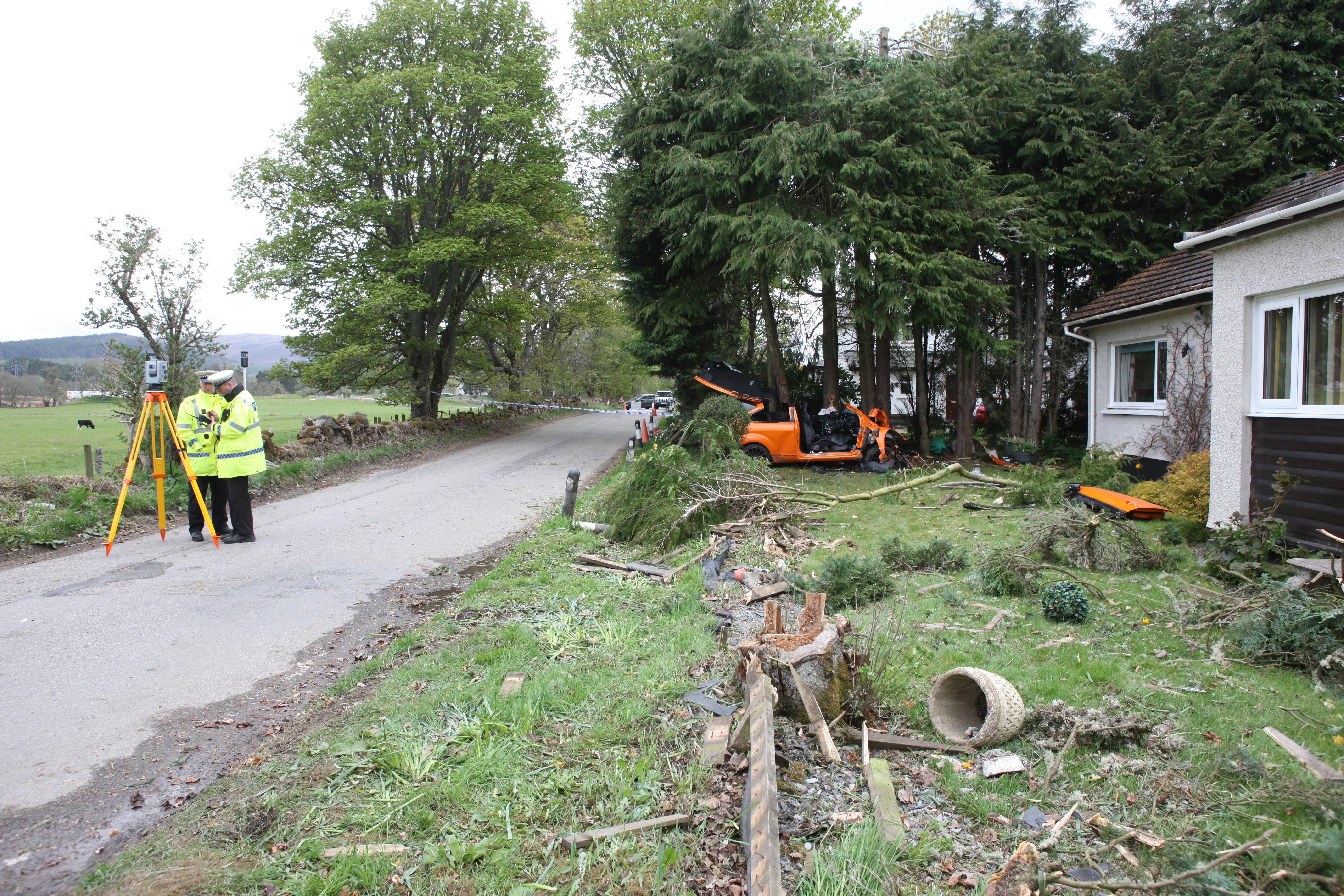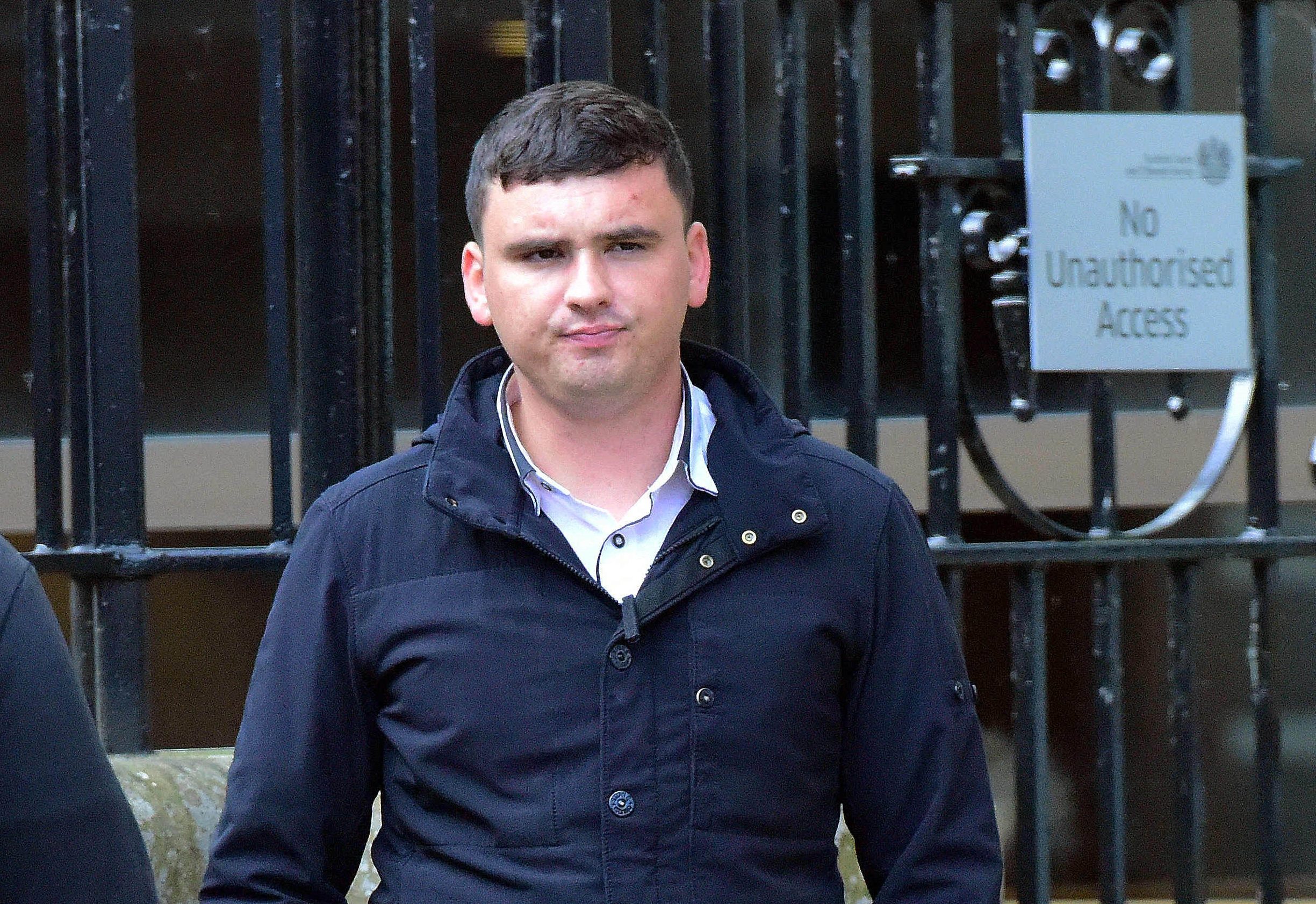
A mother whose son was killed in a crash in his friend’s speeding car, which had earlier been clocked at 125mph, has criticised the sentence handed to the driver.
Caroline MacDonald demanded lifetime driving bans and longer jail sentences for the worst drivers following the death of her son, Shaun Allan.
His former friend, Martin Cameron, 25, was jailed for four years and eight months after he admitted causing Shaun’s death by dangerous driving.
The court heard Cameron drove at 125mph in a 60mph zone minutes before his powerful Ford Focus smashed through a fence, went airborne and crashed into trees next to a house. Cameron had an appalling driving record, with three bans in five years, getting his licence back only two months before the fatal crash.
Last night MacDonald, 51, told The Sunday Post: “I feel I’ve been let down by the court system. I don’t see where the deterrent is in this sentence. What’s that telling other boy racers? It’s telling them that it doesn’t matter what you do – there are no consequences.
“The law is there to protect us, but that’s not protected anybody. What does that boy have to do to never be allowed on the road again? What does any driver have to do?”
Cameron and his friend Shaun, 26, both construction workers, were on their way to work when Cameron lost control of his bright-orange Focus on the B851 at Farr, Inverness-shire.
He was thought to be driving at between 60mph and 70mph in a 40mph zone but had reached 125mph on his way to collect his friend.
Shaun, who had a partner, Megan, and a four-year-old daughter, Marnie, died soon afterwards. At the High Court in Edinburgh last month the judge, Lord Kinclaven, jailed Cameron and banned him from the roads for seven years and eight months to run concurrently with his prison sentence. He had earlier admitted the offence on May 9, 2018.
The judge said Cameron’s actions had “destroyed people’s lives” and he took into account the suffering of Shaun’s family.
However MacDonald, of Inverness, said the sentence was not strong enough, given Cameron’s appalling record.
She said: “He’s never learned – the amount of times he’s had his licence taken off him. Now he’s gone out and he’s done worse…he’s taken the life of someone else because of his inability to obey the law.
“People who have caused a death should not have their licence back. It’s downright irresponsible. They lost their licence for a reason, they caused a death and that licence should never go back.”
“Why on earth would the driving ban run alongside his sentence? He can’t drive anyway where he is. I don’t believe he should have his licence back.”
She believes the worst re-offenders should receive longer sentences.
“Obviously the punishments have not worked. We need to deal with these cases in a way that gets through to these people,” she said.
MacDonald told how Cameron and her son were friends for some years.
She said: “At first, I did not know the circumstances and I didn’t put blame on him. I went to see Martin in hospital two or three days after my son’s death. I had him at the funeral. I’ve not heard a word since.
“In court, I had to sit and hear how sorry he was. He’s never said sorry.
“I understand Cameron’s family are devastated – but they can still see him and speak to him. We don’t have that.”
She described how her family, including Shaun’s brother Mac, 14, and Jaye, 25, are still grieving.
“There’s like a hole, a void, that can never be filled. You get up and it’s just a case of getting through the day.
“You’re still waiting for them to come through the door. I don’t know when that stops.”
Despite her grief, MacDonald said: “I wouldn’t say I’m bitter, I don’t want bitterness in my life. I can’t really hate him, but I can hate his actions.”
She added: “When we went to the sentencing, I felt he was the victim and we weren’t. It was surreal. I felt as if I’d been kicked in the gut. I don’t feel I got closure.”
The maximum sentence for death by dangerous driving in Scotland is 14 years.
There is no maximum driving ban but there is a minimum ban of two years and judges have discretion to hand out lengthier bans.
Two years ago, the Ministry of Justice announced plans to raise the maximum sentence to life but the necessary legislation has not yet been brought forward.
The Judicial Office for Scotland said: “When deciding a sentence, a judge must consider the facts that are presented to the court by both the prosecution and by the defence, taking into account the unique factors of each case.
“The judge will consider the circumstances both of the particular offence, and of the offender.”

Enjoy the convenience of having The Sunday Post delivered as a digital ePaper straight to your smartphone, tablet or computer.
Subscribe for only £5.49 a month and enjoy all the benefits of the printed paper as a digital replica.
Subscribe © Peter Jolly
© Peter Jolly
